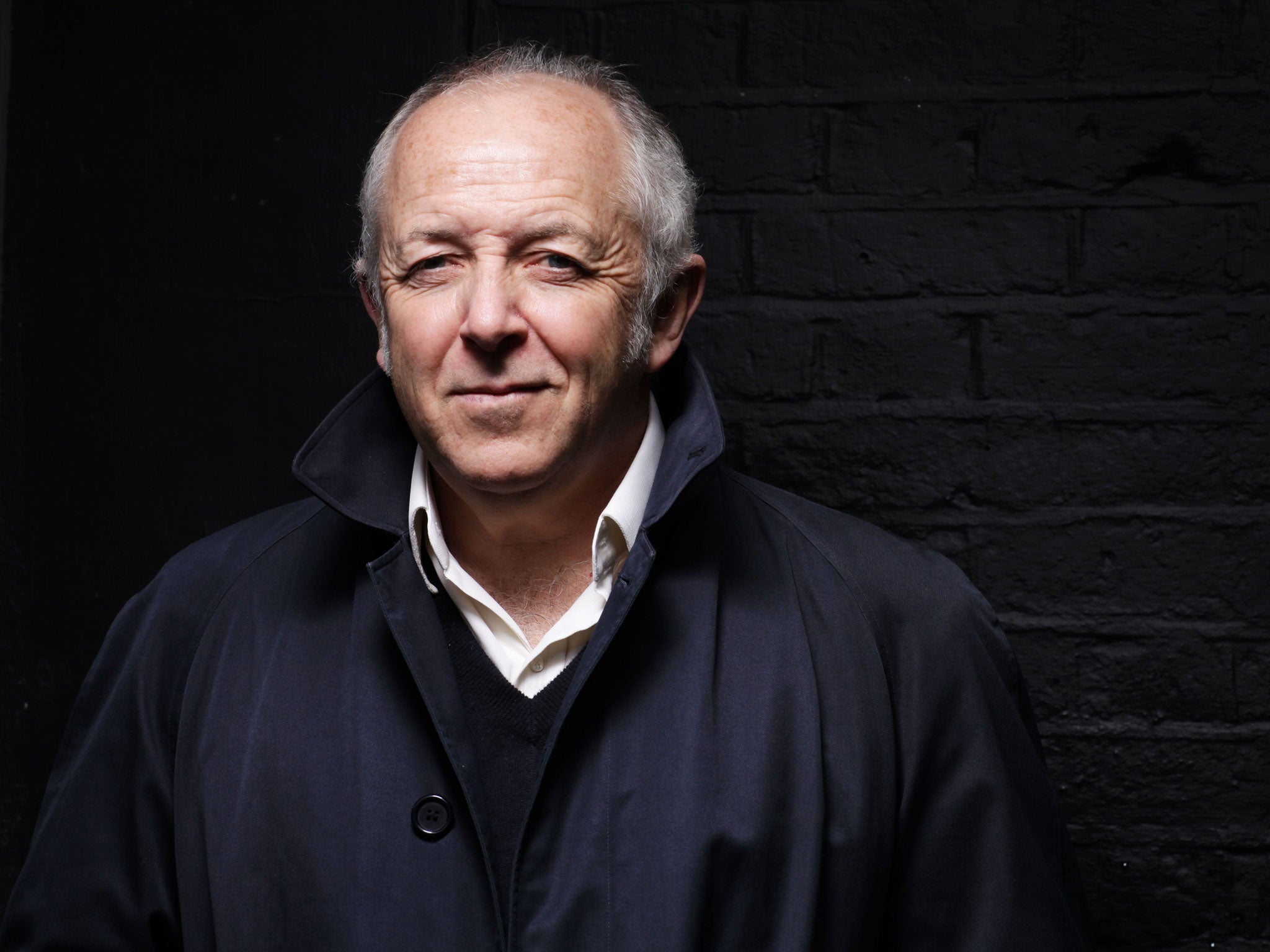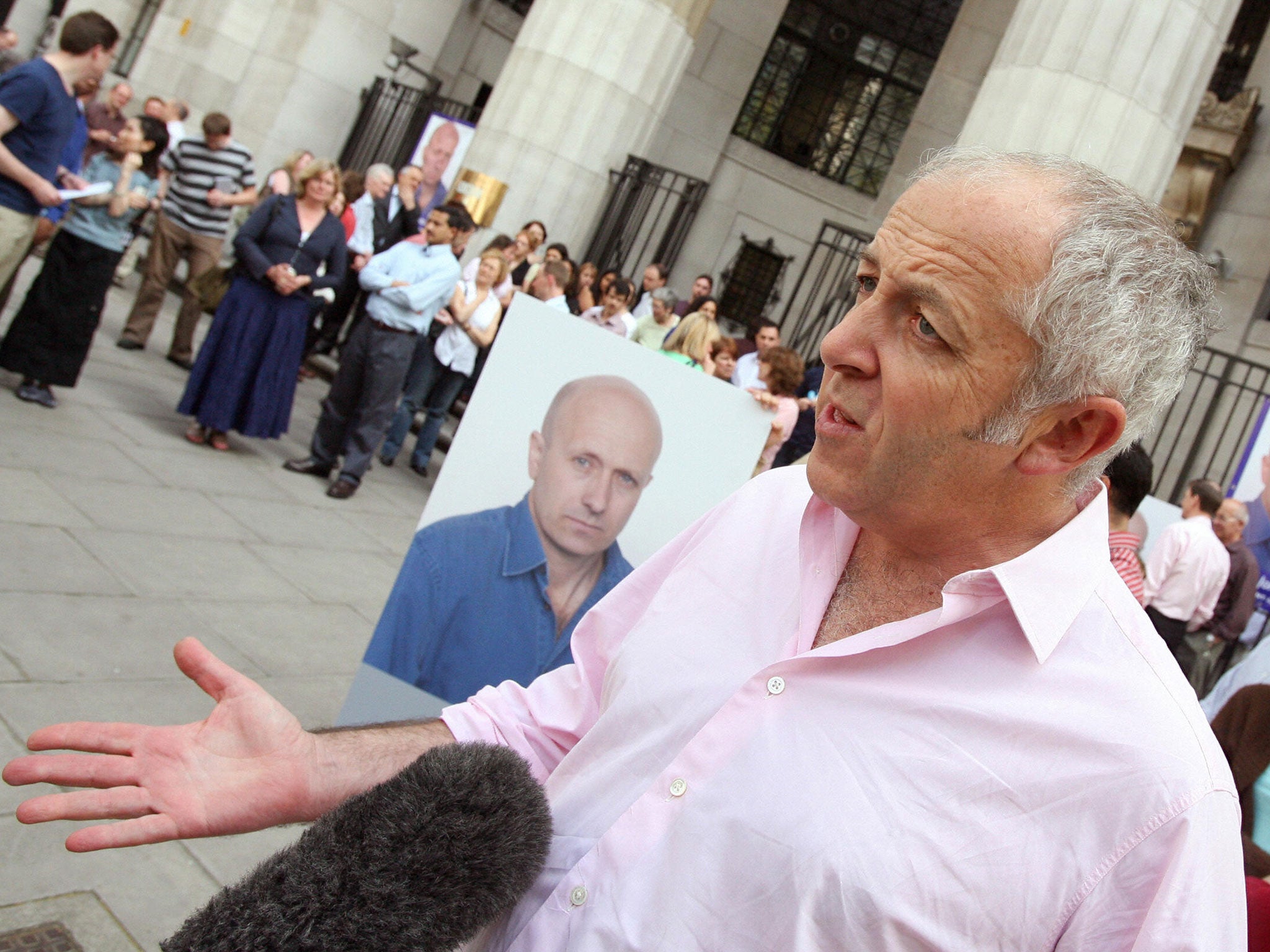Jeremy Bowen: ‘We live in more violent times, no question about it’
From being shot in the face in Cairo to being censured by the BBC Trust, work is a rollercoaster for BBC Middle East editor Jeremy Bowen.

Your support helps us to tell the story
From reproductive rights to climate change to Big Tech, The Independent is on the ground when the story is developing. Whether it's investigating the financials of Elon Musk's pro-Trump PAC or producing our latest documentary, 'The A Word', which shines a light on the American women fighting for reproductive rights, we know how important it is to parse out the facts from the messaging.
At such a critical moment in US history, we need reporters on the ground. Your donation allows us to keep sending journalists to speak to both sides of the story.
The Independent is trusted by Americans across the entire political spectrum. And unlike many other quality news outlets, we choose not to lock Americans out of our reporting and analysis with paywalls. We believe quality journalism should be available to everyone, paid for by those who can afford it.
Your support makes all the difference.Jeremy Bowen nonchalantly brushes a finger across his left temple to indicate the spot where he was shot by Egyptian security forces last July.
“I was very lucky,” he observes, recalling how the shotgun pellets which brought him down in a Cairo street had felt “like being punched very heavily in the side of the head” but had missed his eye and caught the side of his face.
It was the first time in a 30-year career that he had been shot. But although he realised from his bloodied jeans that he had also been hit in the calf, he did not fear for his life. “This was nasty bleeding but I have done a lot of courses and I know when it’s catastrophic bleeding,” he says.
Not long afterwards he was bandaged up and editing a report for that night’s BBC news, covering the murderous response to a demonstration by the Muslim Brotherhood that has just won him the title of News Television Journalist of the Year at the Royal Television Society (RTS) Awards.
One uncharitable press report of the RTS awards ceremony suggested the BBC would have had a wasted night if “an Egyptian hadn’t taken a potshot at Jeremy Bowen”. But the Welshman, 54, would be horrified at the idea of simply being honoured for the “bang bang” journalism that seeks out gunfire for the dramatic pictures it brings. “I wouldn’t want an award on that basis. I wouldn’t want an award because I had bled,” he says.
Bowen wouldn’t deny that he was once drawn to conflict zones like an adrenaline junkie who, as he described it in his book War Stories, was hooked on the “war drug” and left “merry and hysterical” after dodging cluster bombs in Chechnya in 1995.
He was supposed to have put these flirtations with death behind him. But that plan largely unravelled in the Arab Spring of 2011, subject of his new book, The Arab Uprising. “I got swept up in the events that followed 2011 and it’s a very compelling story journalistically,” he says. “It’s the most significant set of things going on in the world at the moment and from my point of view it’s an enormous challenge.”
He remembers the buzz among journalists at the start of the first Gulf War and how he struggled to comprehend the sight of tanks rolling into villages during the break-up of Yugoslavia. A generation later, images of armed conflict have become more familiar, he feels. Yet while he believes the BBC is now showing more pictures of war victims than ever before, editors are “still cautious” about offending viewers.
He recalls how “angry” he felt that pictures of children gassed to death in Damascus had been removed by BBC editors in London from a package he sent from Syria last year. The image was used in the press. “We had a television version of that [image] and I wanted to use it. We put it in at our end and they changed it at the other end.”
Bowen says he had “plenty of complaints” from BBC viewers in the Middle East over the lack of bodies in television reports on violent conflict. “I say we are trying to spare the viewer’s feelings and they say you are covering up the truth – the truth is that kids are being blown to bits.”
The seasoned journalist says he had fought a career-long battle against the “Hollywoodisation” of television news, in which shots of war participants firing weapons are commonplace “but it wasn’t considered OK to show the consequences”. “You can show the effect on the living, the sadness,” he says. “But I think there is a time and a place sometimes to show dead bodies, dead bodies of kids.”
There are limits, of course – he accepts graphic material should only be shown after the television watershed. “I have young kids and I would never want it on at a time when children could easily see it.”

Bowen remembers complaints from BBC bosses when he included distant images of dead bodies in a report on the Bangladesh cyclone of 1991, when 125,000 people died. He and colleagues had “constant rows” with editors over showing images of casualties in coverage of the war in Bosnia.
But he believes the BBC’s approach is changing due to rising levels of violence in the world. “We live in more violent times than when I started working, no question about it.” He points to last year’s use by ITV of graphic footage of the murder of Lee Rigby as symptomatic of a “change in the climate” in television news.
If the world is becoming more violent, it’s particularly true that his patch, which he has covered since 2005 as the BBC’s first Middle East Editor, is “in ferment”. The risks to a British correspondent are many. The environment he works in is “getting more dangerous and it is more anti-Western than it was”. He recalls having to take refuge in a café after a crowd in a poor Cairo suburb turned on him and his crew. “We were targets because we were foreigners,” he says.
In Syria, the dangers are greater still. “Many Syrians get kidnapped but Westerners are prized victims.” In his early days as a correspondent, “we were quite often regarded as non-combatants and relatively neutral” but now he must face up to not just angry mobs and kidnappers but lobbyists too.
He is still smarting from a controversial BBC Trust finding against him in 2009, which outraged journalists both inside and outside the BBC. He maintains that the ruling – relating to the sourcing of part of a story on Israeli settlements, following complaints by two full-time pro-Israeli lobbyists – was a “mistake” based on a “flawed” investigation process that has now been changed. “One person they took advice from who was held up as independent was later appointed as Israel’s ambassador to the United States,” he complains. The BBC Trust continues to defend its findings.
On top of this, BBC journalists must work an increasingly punishing schedule across multiple media platforms in the face of £60 million cuts to the news budget. Media rivals might not sympathise with an organisation that still operates what Bowen calls a “gigantic machine” but the Middle East editor is concerned for his colleagues. His own commitments extend from the Today programme on Radio 4, through live broadcasts on the BBC News Channel and BBC World to the 6pm radio and television bulletins and, most importantly of all, the BBC News at Ten. He says that 18-hour days are common.
Nevertheless, he is “overdue” a trip to Libya and has visa applications in for Saudi Arabia and Syria. “It will be a busy year,” he says. “The story is not letting up on me.”
Join our commenting forum
Join thought-provoking conversations, follow other Independent readers and see their replies
Comments